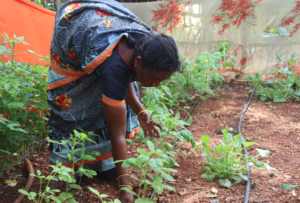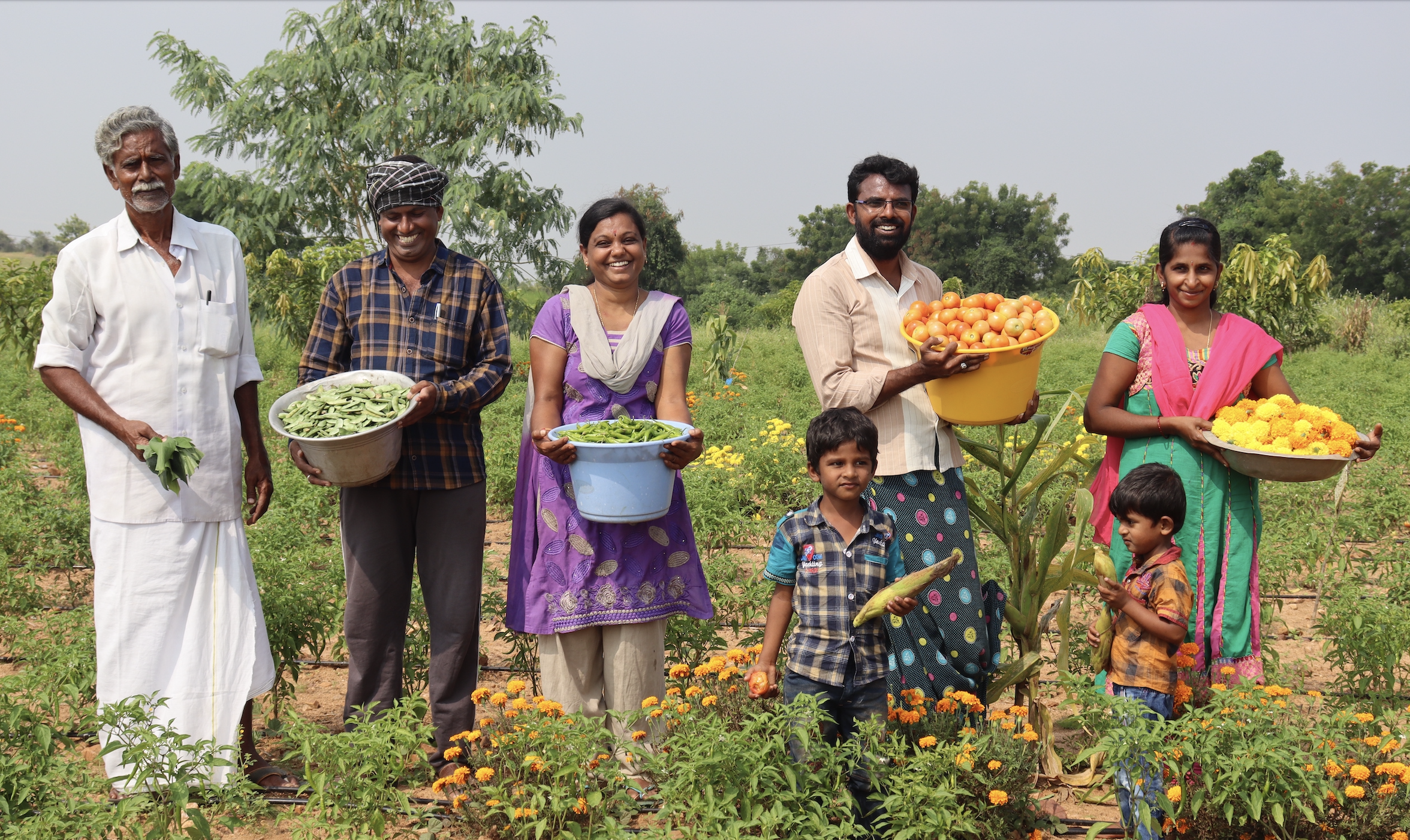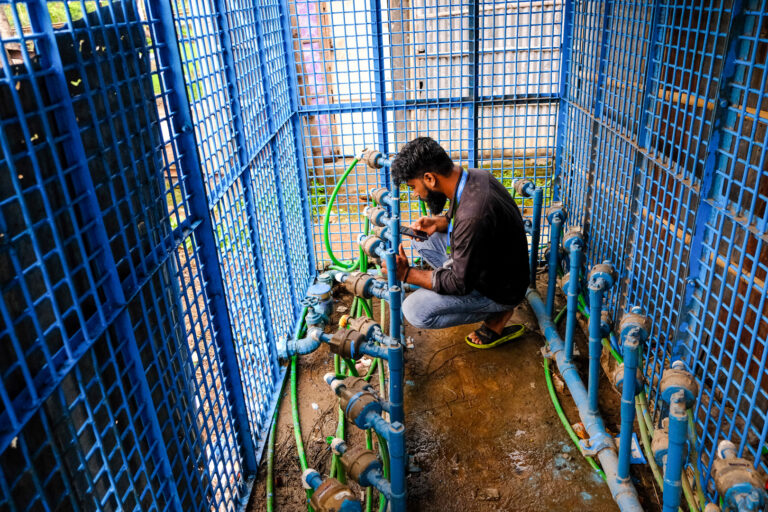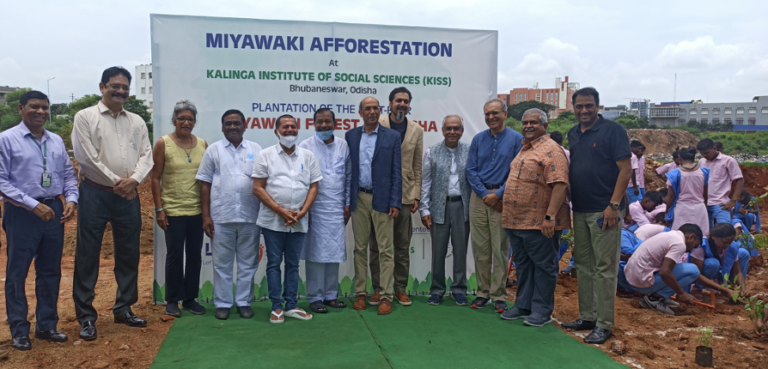Over the past months, the conflict in Ukraine has shocked the global food system and energy markets that were already hampered by the COVID-19 pandemic and worsening climate conditions. Ukraine’s grain and oilseed exports have mostly ceased, and Russia’s supply is also in jeopardy. These two countries supply 12% of traded calories. Wheat prices have doubled since last year, and increased another 6% on 16 May 2022, when India announced it would suspend its wheat exports because of its extreme hot weather. Another 23 countries, ranging from Kazakhstan to Kuwait, have imposed significant limitations on their food exports, which account for 10% of all calories exchanged internationally.
Beyond the conflict in Ukraine, the World Food Program projected that 2022 would be a terrible year for food production. China, the world’s largest wheat producer, experienced its worst yield ever after rains delayed the planting of crops. North America and Europe are also on the verge of declining wheat production due to reduced rainfall, while parts of Africa are suffering from the worst drought in nearly 40 years.
The deadly combination of conflict, trade restrictions, and climate change have exacerbated food insecurity globally. 250 million people are now on the brink of famine. If trade stops and yields fall, famine will surely ensue.
It’s against this backdrop that Earlene Cruz, Founder of the Kitchen Connection Alliance (KCA), has launched KCA’s newest cookbook that aims to empower people to tackle both food insecurity and the climate crisis from their kitchens. On Tuesday 24 May 2022, Ms. Cruz presented The Cookbook in Support of the United Nations: For People and Planet to the press, which is available for pre-order on Amazon and will be in stores from 8 November 2022, onwards. The innovative education hub has worked together with the UN Food and Agriculture Organization (FAO) in launching the new and revolutionary cookbook that aims to empower global citizens to make personal small choices that will contribute to a better and more sustainable food system. The Cookbook in Support of the United Nations: For People and Planet uses food as a vehicle to bring people together in support of a better food system and the UN Sustainable Development Goals (SDGs). In this cookbook, celebrity chefs, organic farmers, indigenous cooks, and food activists share their favorite entrées and side dishes that are not only healthy and delicious but also sustainable. All recipes contain nutritional information and estimated carbon footprints to promote the most climate-friendly dishes that support sustainable food systems.
“As the world recovers from the COVID-19 pandemic, it’s our final chance to reconnect with the planet. A planet where we protect, conserve, and restore nature to create a sustainable future. This cookbook is a great example of how food can be used as a vehicle for change, and how sustainable food systems represent a triple win opportunity for climate, nature, and people.” – Satya S. Tripathi, Secretary-General of the Global Alliance for a Sustainable Planet

The cookbook is tailored to the local context, encouraging the use of locally sourced ingredients, to reduce the carbon footprint. By utilizing diverse ingredients, the cookbook embarks on a quest to promote sustainable agriculture and sustainable food systems. For many years now, the world has focused on high-yield industrialized agriculture that usually entails monocropping and the adoption of inorganic components to boost production without paying sufficient attention to soil health and the environment. This form of farming has undoubtedly increased yields. However, today we can no longer neglect the harmful environmental impacts from unsustainable farming, such as warming due to rising greenhouse gas emissions. On the other hand, regenerative agriculture promotes permanent soil cover and diversification of plant species. It improves biodiversity and biological processes, both below and above ground. This type of agriculture promotes carbon sequestration, thereby promoting a resilient environment and combating climate change. If we hope to redefine agriculture and rethink our food systems, we must consider regenerative agriculture as a viable solution. And, as frontier earth champions, farmers are well positioned to lead this revolution.

KCA and FAO recognize the important role that farmers play in the global food system and sharing their wisdom by featuring them in the cookbook. During the book launch, Dr. Theo de Jager, President of the World Farmers’ Organization, remarked that the food debate should be centered around farmers as they are the main drivers of change in the food system. The route to achieving food security begins with sustainable food production spurred by farmers worldwide, as illustrated by the farmers’ contributions to the cookbook.
“We have to rethink our food system because of the impact it has on nature, biodiversity, and climate. And we need to create a world without hunger. Therefore, the food system has to be farmer driven. This cookbook is a small contribution to this debate. As farmers and our contribution to this book we want to remind the world “no farmers, no food”. – Dr. Theo de Jager, President of the World Farmer’s Organisation
Besides encouraging the use of sustainably produced and locally sourced ingredients, the cookbook also plays an important role in celebrating cultures worldwide; it is an opportunity to appreciate cultures, history, and biodiversity. Through this book, many were able to recount stories of how food transcends taste – how it stands for culture, knowledge, and sovereignty. For instance, the featured recipe of “Arctic Charr” tells a story of the Inuit people. Sheila Flaherty is the inspirational chef and representative of the indigenous Inuit community for this cookbook project, who contributed this dish. Sheila is an Inuit woman from Iqaluit, Nunavut. Inuit are a circumpolar indigenous people in the Northwest Territories in Canada, and these people strive to maintain food sovereignty in the Arctic. The Inuit have lived off the land for thousands of years and the wildlife and environment around them are central to their culture, well-being, and economy. Climate change is causing sea ice to disappear and permafrost to thaw, threatening the animals Inuit rely on.
“We need all the support possible to uphold Inuit cultural practices, because that is the most delicious and sustainable food accessible to our communities” – Ms. Sheila Flaherty, Chef
Through this cookbook, the Inuit People and their cultural practices are getting the representation they need, which is a commendable effort toward achieving food sovereignty and cultural representation, as well as the SDGs and sustainable food systems.
The Cookbook in Support of the United Nations: For People and Planet serves as a personal guide, adapted to local contexts, to learn about and improve individual food choices and cooking habits, and their impact on the food system. It presents 75 diverse and delicious recipes that are in line with a sustainable food system while at the same time supporting cultural practices across the globe. This book aims to use food and culinary art as a cultural instrument to improve food systems. Learn how to eat better for yourself and for the planet with The Cookbook in Support of the United Nations: For People and Planet, a global collection for global connection.



